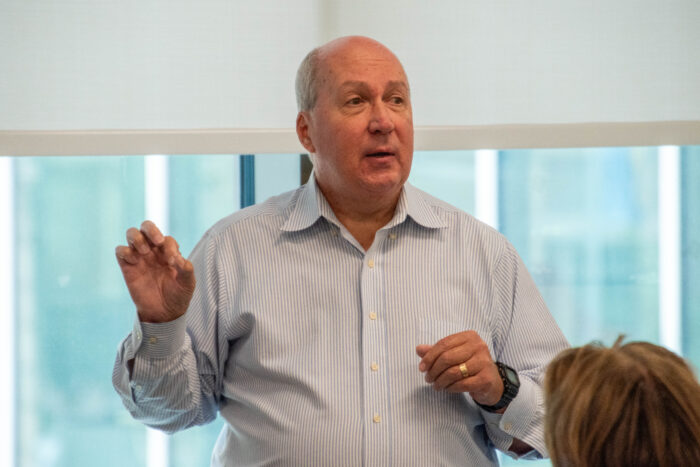Marquette University’s Center for Urban Research, Teaching and Outreach positions itself as an intellectual axis and key convener of programs that address issues central to affirming human rights and human dignity. Building upon its network of local community experts and stakeholders, CURTO’s projects and initiatives share several features rooted in its mission and guiding values.

Dr. Robert S. Smith is the director of CURTO and Harry G. John Professor of History at Marquette University. His research and teaching interests include African American history, civil rights history, and exploring the intersections of race and law.
Here in a Q&A, Smith discusses his role at Marquette and how he and CURTO provide an equitable and inclusive environment on campus.
What is the role of the Center for Urban Research, Teaching and Outreach on campus?
The Center for Urban Research, Teaching and Outreach positions itself as an intellectual axis and key convener of programs that address issues central to affirming human rights and human dignity. In alignment with Marquette University’s mission to “…search for truth (and) the discovery and sharing of knowledge,” the center facilitates collaborations that bring together a wide array of community and campus experts.
In your position, how do you advance Marquette’s mission to create a diverse and inclusive environment for all students on campus?
CURTO’s initiatives engage rights-based issues by welcoming interdisciplinary teams of faculty, community experts, undergraduate and graduate students to collaborate on ideas informed by the campus mission. We are especially proud of the diverse community of voices who make up our teams. Our guiding values call us to:
- Support faculty research
- Support undergraduate/graduate student research
- Serve as a hub for interdisciplinary collaborations
- Provide a model for engaged scholarship
- Fully integrate community voices/experts in CURTO’s efforts
- Champion engaged scholarship in the promotion/tenure process
- Strengthen relationships between Marquette University and the city of Milwaukee
How has your research into African American history, civil rights history, and the exploration of race and law guided you in your work at Marquette?
It shapes how I approach teaching and research. But my role as CURTO director is informed by my 30 years in higher ed, especially my time working in student affairs. My research has played a role in thinking about how to create a democratic, healthy workplace. My administrative experience informs us how to support staff, while trusting their ideas and instincts.
In your opinion, how important do you view your role in promoting a diverse and inclusive environment on Marquette’s campus?
CURTO’s inclusive environment is required by virtue of our university’s stated mission, vision and values. It’s not optional, it’s critically important, it’s the only way forward. To do otherwise would be hypocritical.”
What do you see in the future for Marquette and its work towards a diverse and inclusive campus?
It’s a future that requires ongoing efforts toward inclusivity and equity. These are not end goals in the way people imagine. Diversity and inclusion are practices and commitments we must continually develop and demonstrate.


